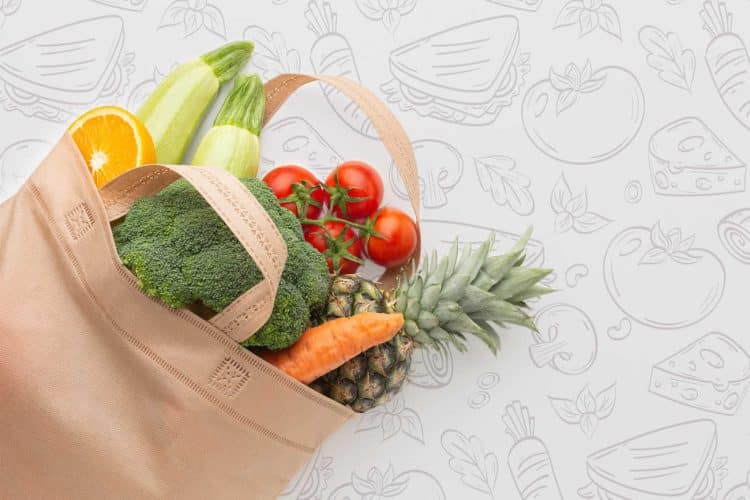If you’ve noticed your grocery bill creeping higher and higher each week, you’re not alone. Food costs have been steadily rising, and for many households, the weekly shop has become one of the biggest strains on the budget. The good news? You don’t need to sacrifice quality or flavour to cut down your spending. With a little planning and some smart habits, you can save money on groceries without feeling deprived.
In this guide, I’ll share simple, practical strategies that make a genuine difference. From planning meals before you shop to making the most of sales and reducing food waste at home, these tips are designed to help you keep more money in your pocket while still eating well.
Why Grocery Bills Are Rising
Before diving into solutions, it helps to understand what’s driving the cost of food. Prices are affected by many factors: inflation, supply chain issues, higher energy costs, and increased demand for certain products. On top of that, everyday habits—like impulse buys, food waste, or buying too many convenience items—can quietly inflate your bill.
The key to saving money isn’t about cutting corners on quality. It’s about becoming more intentional with how you plan, shop, and store your food.
Core Principles Before You Shop
Plan your meals
Planning your meals for the week is one of the most powerful ways to save. When you know exactly what you’ll be cooking, you can shop with purpose and avoid last-minute takeaways or expensive convenience foods.
Check your cupboards first
It’s easy to forget what you already have at home. A quick look through your fridge, freezer, and pantry helps you avoid buying duplicates and reminds you of items that need to be used up.
Set a budget
Decide how much you want to spend before heading out. Having a set limit keeps you focused, and you’ll be more mindful of each item that goes into the trolley.
Shop with a list
A list is your best defence against impulse buys. If it’s not on the list, it doesn’t go in the basket.
Smart Shopping Strategies
Shop at quieter times
Going early in the morning or later in the evening can mean fewer distractions and less temptation. Some stores also mark down items close to closing time.
Go solo
Shopping with family or friends often means extra items sneak into the trolley. If you shop alone, you’re more likely to stick to your plan.
Try store brands
Generic or own-brand products are often just as good as premium labels, but cost far less. Test a few swaps each week and you might be surprised at the savings.
Choose frozen and canned alternatives
Frozen vegetables, berries, or fish can be just as nutritious as fresh, and they last much longer. Canned beans and tomatoes are kitchen essentials that save money and reduce waste.
Buy seasonal produce
When fruits and vegetables are in season locally, they’re fresher, tastier, and cheaper. Out-of-season items often come with a premium price tag.
Make the most of loyalty cards and apps
Many supermarkets now have apps or membership schemes that offer exclusive discounts, cashback, or coupons. Used wisely, these can cut a significant amount off your bill.
Bulk buy wisely
For non-perishables like pasta, rice, or cleaning supplies, buying in bulk often works out cheaper per unit. Just avoid over-stocking items that might expire before you use them.
Reducing Waste & Getting More Value
Store food properly
Airtight containers, fridge organisers, and freezer bags can make a big difference. Proper storage extends the life of your food and reduces the chance of it being thrown out.
Use leftovers creatively
Last night’s roast chicken can become sandwiches or soup the next day. A few extra vegetables can be turned into stir-fries or omelettes. Thinking creatively keeps meals varied and affordable.
Rotate what you buy
Keep track of what tends to go uneaten in your household. If certain foods regularly end up in the bin, buy less of them or find recipes that use them up.
Don’t ignore the reduced section
Discounted “use by” items can be a great deal if you’re able to freeze or cook them quickly.
Tech & Tools That Help
Modern tools can help you save even more:
- Budgeting apps let you track your grocery spend week by week.
- Price comparison apps highlight where items are cheapest locally.
- Cashback and coupon apps give you money back on selected items.
- Supermarket apps often have personalised offers tailored to what you usually buy.
Common Pitfalls to Avoid
Shopping hungry
A hungry shopper is a spender. Eat before you go to avoid impulse buys.
Falling for “special deals”
Three-for-two offers aren’t savings if you don’t actually need the items. Always compare unit prices.
Overbuying perishables
Fresh food can be tempting, but if it spoils before you use it, it’s wasted money. Buy smaller amounts more often, or choose frozen options.
Ignoring unit pricing
Sometimes a larger pack isn’t cheaper once you calculate cost per gram or per litre. Always check the shelf label for unit price comparisons.
Our Final Say!
Saving money on groceries isn’t about drastic changes or cutting out your favourite foods. It’s about small, consistent habits that reduce waste, encourage smarter choices, and stretch your budget further.
Start by trying just a few of these tips on your next shop. Keep track of the difference over a month—you might be surprised at how much you save. And remember: being intentional about your groceries doesn’t just save money; it also helps reduce waste and makes mealtimes less stressful.
Bathroom Lighting Online Sale – Earn 5 Off By Signing Up For The Cherry Lane Newsletter – Biocare Voucher Code Uk 10 Off First Order



No Comments
Leave Comment